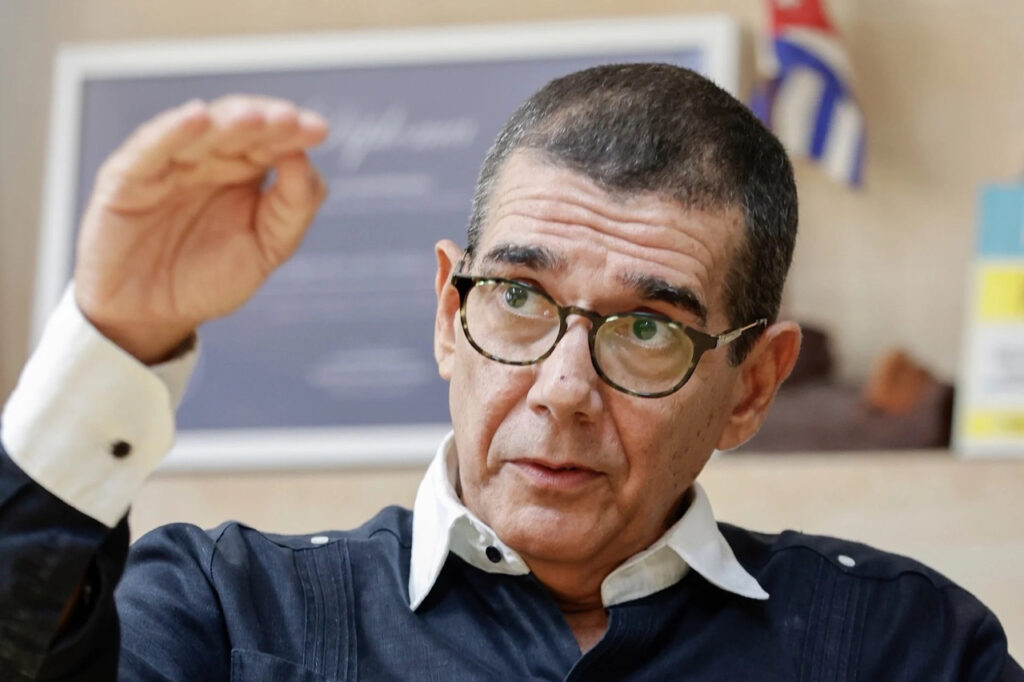Former Cuban ambassador to Washington, José Ramón Cabañas, describes the relationship between the two countries as “a war scenario”

EFE/Juan Palop (via 14ymedio), Havana, August 26, 2024 — Cuba is used to “sailing in turbulent waters,” says José Ramón Cabañas, director of the official Center for Foreign Policy Research (CIPI) of Cuba, when asked in an interview with EFE about the potential expansion of the international context for the island.
The possibility of Donald Trump returning to the White House, the instability in Caracas after the elections, the change in the presidency of Mexico and the turn to the right in the European institutions after the last elections are elements that can affect Cuba, in itself in a deep crisis.
“Cuba has been able to navigate in very turbulent waters,” answered Cabañas, who was ambassador in Washington during the bilateral approach known as the ’thaw’.”
He recognizes that the tightening of the policies of the United States and the European Union towards Cuba, as well as the distancing of some regional partners, “can be one of the possibilities” in the “immediate future.”
In his opinion, the US sanctions against the Island have “exactly” the same effects “from an economic” and “social” point of view as an armed conflict
However, he adds that the Island is “a country of struggle and winning,” and its diplomacy “has experience” in adverse contexts. “In one way or another we have been at war since 1959,” he says in reference to the triumph of the Revolution led by Fidel Castro.
In his opinion, the US sanctions against the island have “exactly” the same effects “from the economic” and “social” point of view as an armed conflict. Then there is what he calls a cultural and media battle, which contribute to generating a “state of tension” equivalent to “a war scenario.”
On whether this situation justifies limitations on fundamental rights, he


